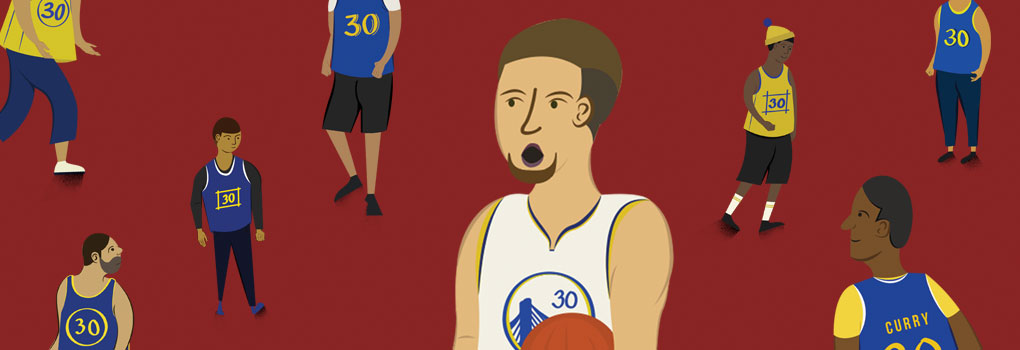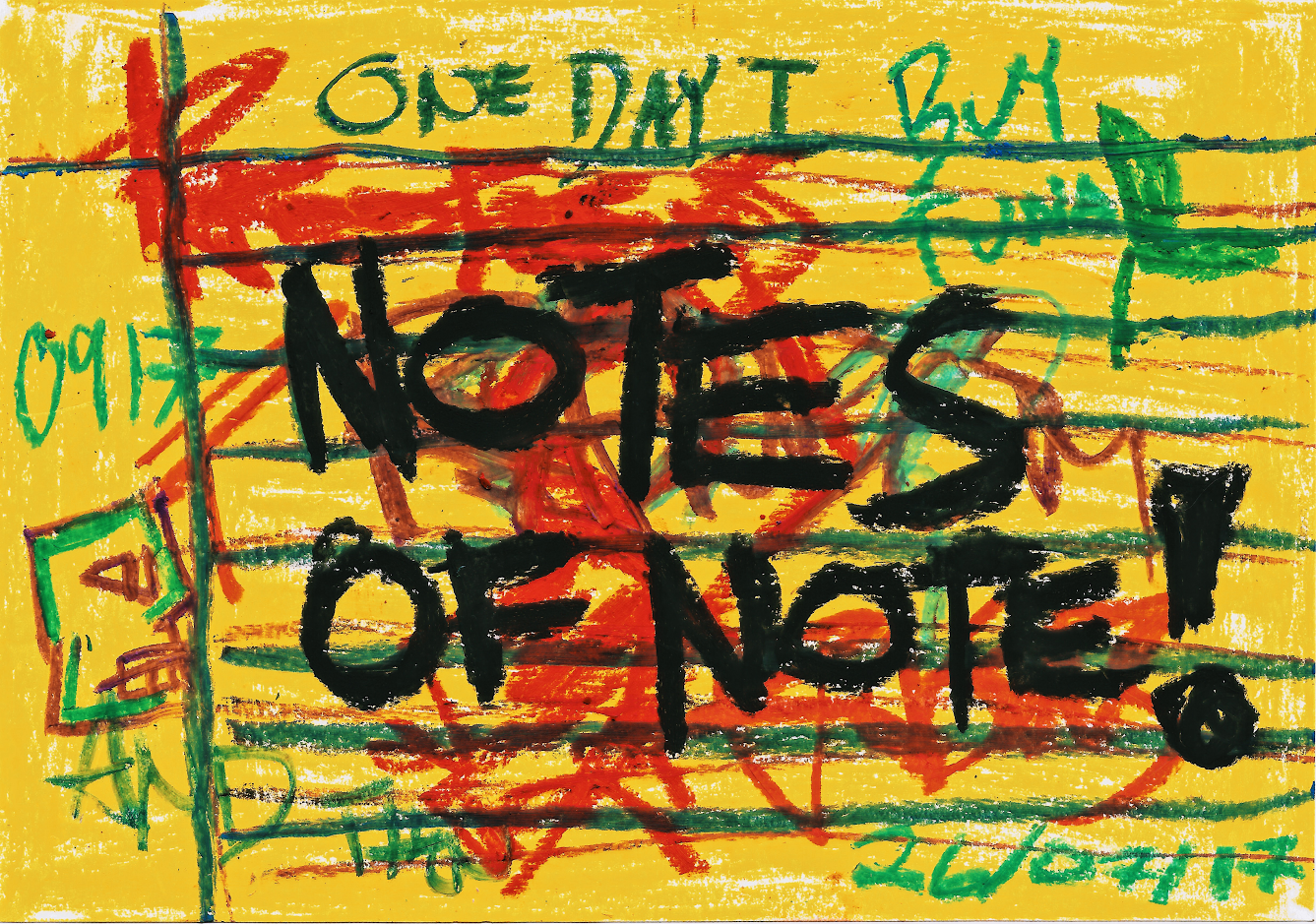By Stan Sy. Illustration by Alyana Garong
Bandwagoning is not new at all, most certainly not in professional basketball. When the Los Angeles Lakers ascended to the NBA Championship in the early 2000s, people would call the Lakers their favorite team because they wanted to root for Shaquille O’Neal and/or Kobe Bryant. And while there’s nothing wrong with that, you’ll find that they won’t know anyone else on the Lakers other than Shaq or Kobe.
The same people who’d go through basketball message boards and forums commenting “1st!!!” Or “Lakers 4 lyf!!!” are the same people who won’t be able to tell Michael Cooper from James Worthy. Or that Pat Riley was once the Lakers’ head coach. Hell, the Lakers are more than a decade removed from the Shaq-Kobe dynasty, and that team still has bandwagon fans to this day.
Remember when the Decision happened and all those so-called Cavaliers fans traded in their Cavs jerseys for Miami Heat duds? These guys dropped their loyalty cards faster than Blake Griffin dropped the Clippers’ equipment manager.
And then there are all these Warriors fans who only started rooting for Steph Curry and the Golden State Warriors when they won a championship, or just hopped on the bandwagon now that they’re chasing history by trying to get 73 wins. They’ll call the Warriors their favorite team and call themselves diehards, and even say that the Warriors are the gods of basketball, when in reality, that franchise went through four decades of futility before last season’s feel-good championship season.
What’s peculiar is that while everyone knows that being called a “bandwagon fan” isn’t positive, not everyone actually knows what a “bandwagon fan” is.
So let’s define it right here so we’re all on the same page: a bandwagon fan is someone who claims to be a fan of a person or a team who is experiencing a period of success. These fans lose interest in said person/team when they go through tough times. These people only start being vocal about their fandom during times of peak interest like the playoffs, even though they most probably didn’t give a shit about the team during the regular season. They aren’t likely to own, much less buy any team merchandise, since they probably don’t even know who plays for that team anyway, except for the team’s stars.
In contrast, a diehard fan is someone who sticks with an athlete/team through thick and thin. They feel a connection with that team through moments of victory and commiserate in its defeats. Immersed in the team’s history, they’re most likely able to rattle off names of past players and coaches, or even the years in which that team won the championship. Open their closets, and you’ll probably find merchandise of that team among their clothing.
Before we get any further, let me just clarify that sports fandom is not dichotomous. It’s not a case of you either being just a diehard or a bandwagoner. Sports fandom is more like a spectrum, with those two ends being polar opposites, and most fans falling somewhere in between.
[pull_quote]Remember when the Decision happened and all those so-called Cavaliers fans traded in their Cavs jerseys for Miami Heat duds? These guys dropped their loyalty cards faster than Blake Griffin dropped the Clippers’ equipment manager.[/pull_quote]
So why do people hate bandwagon fans?
The reason bandwagoners get so much scorn from sports fans is because they’re such blatantly fair-weather fans—the type of friends you don’t need in your life.
Imagine all the people on your Facebook timeline. Assume you have 1,000 friends. If something bad should happen to you—like, say, a breakup, or getting fired, or losing a loved one—a good number of them will probably drop a Facebook comment or a message to express sympathy. But only 15 or 20 would really go out of their way to commiserate with you in person. That doesn’t make you feel very good about the other 980 people on your feed, right?
That’s exactly how it is with bandwagon fans. They’re there for all the good times, but are gone just as quickly when the ship starts to sink. The Miami Heat’s bandwagoners were the most awful examples in recent memory.
While the Heat won the NBA Championship in 2013, it took them the entire seven games to defeat the San Antonio Spurs. It was Game 6 in Miami, with the Spurs up 3-2, meaning if the Heat were to have lost (at home), the Spurs would have won the title. The Heat were down by seven points entering the fourth quarter, but kept the game within a single possession (defined as either two or three points apart) from the 8:00 mark until the final minute. The Heat actually had a three-point lead with two minutes remaining.
And yet the Heat’s wonderful fans thought it would be better to beat the traffic by leaving the game before the buzzer sounded. I’m no expert in Miami traffic, but I’m pretty sure it’s not as horrendous as the shit we have to go through in Manila. So the Heat’s so-called fans start to leave when “their team” was down by five points in the final 30 seconds of the fourth quarter. But guess what. The Heat came back to force overtime after taking advantage of the Spurs’ mistakes and punctuating it with a three-pointer by Ray Allen.
The fans who’d already left the game weren’t allowed back into the American Airlines Arena due to the venue’s protocol. They deserved not to witness that thrilling comeback anyway. The Heat would go on to win Game 6 after overtime, 103-100, and they would seal the series in Miami in Game 7.
And if you think that was a one-time thing, then you’re dead wrong. The Heat faithful would do the same thing the following year in the Finals, after the Heat just had a horrible game against the Spurs in Game 3 of that series, losing 111-92. And then the following game, these fans even booed the Heat for being outclassed, outgunned, and outperformed by the same Spurs they defeated the previous year. Fucking wonderful.
That type of behavior reeks of a sense of entitlement a spoiled fanbase develops because they didn’t go through the heartache of seeing their team fail year after year. Compare that to the hardcore fans of the Warriors, who went through 40 years of hell within their franchise between their first championship in 1975 until they finally won the NBA Championship again last year. Not that the Warriors themselves don’t have any bandwagon fans either. (Just saying.)
Other reasons why bandwagon fans earn (and deserve) so much ire from other fans is because they claim to be diehards, especially on social media, by posting a photo of them attending a game (when they just happened to be tourists), or wearing team gear that was just given to them as a gift, or latching on to a team during its rise to the top. And yet if they were to be quizzed about the team’s current roster, they won’t know anything beyond the names of the team’s marquee players.
Ask the so-called Warriors fan nearest to you if he knows who Shaun Livingston is, and why his championship story is actually a tear-jerker. Or Festus Ezeli. Or Mo Speights. Hell, ask him if he knew that Steve Kerr was once a point guard on Michael Jordan’s Bulls teams in the mid-90s. If he answers with a wide-eyed expression of awe, then you know that motherfucker’s a bandwagoner.
[pull_quote]If something bad should happen to you, a good number of your friends will probably drop a Facebook comment or a message to express sympathy. But only 15 or 20 would really go out of their way to commiserate with you in person. That doesn’t make you feel very good about the other 980 people on your feed, right? That’s exactly how it is with bandwagon fans.[/pull_quote]
Can’t we all just be fans?
Let it not be said that I am forbidding anyone from becoming a new fan of something. After all, you don’t become a hardcore fan without starting somewhere, and that “somewhere” is always as a new fan. There’s nothing wrong with enjoying LeBron James’s game and being a fan of how great he is, just as there’s nothing wrong with appreciating the beauty of the Spurs’ ball movement and the reverence that’s kept their organization together. There’s also nothing wrong with being interested in this Warriors team that’s actively chasing the best record in NBA history. Hell, it’s been the single biggest story in the league all year.
If you want to follow the Warriors because you want to root for them as they chase 73 wins, nothing should stop you from doing that. If you want to root for the Cavaliers because they’re stacked with talent, nothing should stop you from that either. There shouldn’t be anything that stops you from being a fan, a new fan at that.
But your fandom shouldn’t stop with just rooting for the flavor of the month and then looking for the next one right afterward. If you’ve found a player or a team you like, educate yourself on what makes them great, or what makes them fun to watch. Immerse yourself in the team’s history. Even the sadsacks of any professional league have stories to tell.
That’s what made the NBA’s “30 Teams, 30 Stories” tagline from a few years ago so simple yet so brilliant. Every team has a story to tell, good or bad. It’s up to you as a fan to frame that narrative as something that drives your fandom. For example, the Celtics didn’t win an NBA Championship for 22 years after 1986. But that extended period of mediocrity in the team’s history made the climb to the top so much sweeter when the team finally won a title again in 2008.
Don’t take ownership of the team and its successes by saying things like, “my Warriors” or “our Championship.” That shit’s actually offensive to both fans and members of the team. After all, while you were channel-surfing comfortably on your couch through the first 46 minutes of the game, it was guys like Steph Curry and Klay Thompson who were physically grinding it out on the court and earning that ring. That’s not cool.
[pull_quote]But your fandom shouldn’t stop with just rooting for the flavor of the month and then looking for the next one right afterward. If you’ve found a player or a team you like, educate yourself on what makes them great, or what makes them fun to watch. Immerse yourself in the team’s history. Even the sadsacks of any professional league have stories to tell.[/pull_quote]
Let’s be real here, watching a sport is rarely fun when you have nobody to root for (or against). Hell, a huge part of why people get into sports is because they’re getting behind somebody whether it’s to appreciate greatness, to witness a narrative unfold, or simply to watch another guy or team lose. Look no further than the sudden influx of Dallas Mavericks “fans” or supporters when they faced the Miami Heat in the 2011 NBA Finals—LeBron’s first season with the Heat.
It’s perfectly normal to find yourself rooting for different teams from time to time, especially when your own team isn’t part of the championship chase. It happens. Team success is part of the circle of life: the team is put together, grows together, reaches its peak, declines, flounders and fails, and then rebuilds to ascend again. Or you could just simply want to be part of the fans’ game of “my team is better than yours,” and honestly, who doesn’t like being part of the winning team?
All of that is fine and well, as long as you know your place, because sports fans are a tricky bunch. We’re territorial, and we hate it when people try to conform to what we like or who we support when it’s just part of some passing fad. Not that we’re stopping anyone from becoming a fan—hop on if you want to, but do remember to learn about what it is you’re beginning to enjoy. Appreciate what it is that make real fans love the players or the team. Don’t alienate us (and yourself) by mouthing off about this and that when you don’t know anything. In the words of Dwayne “The Rock” Johnson, shut your mouth and know your role.
This article originally appeared on the May-June 2016 issue of Scout.

























Comments